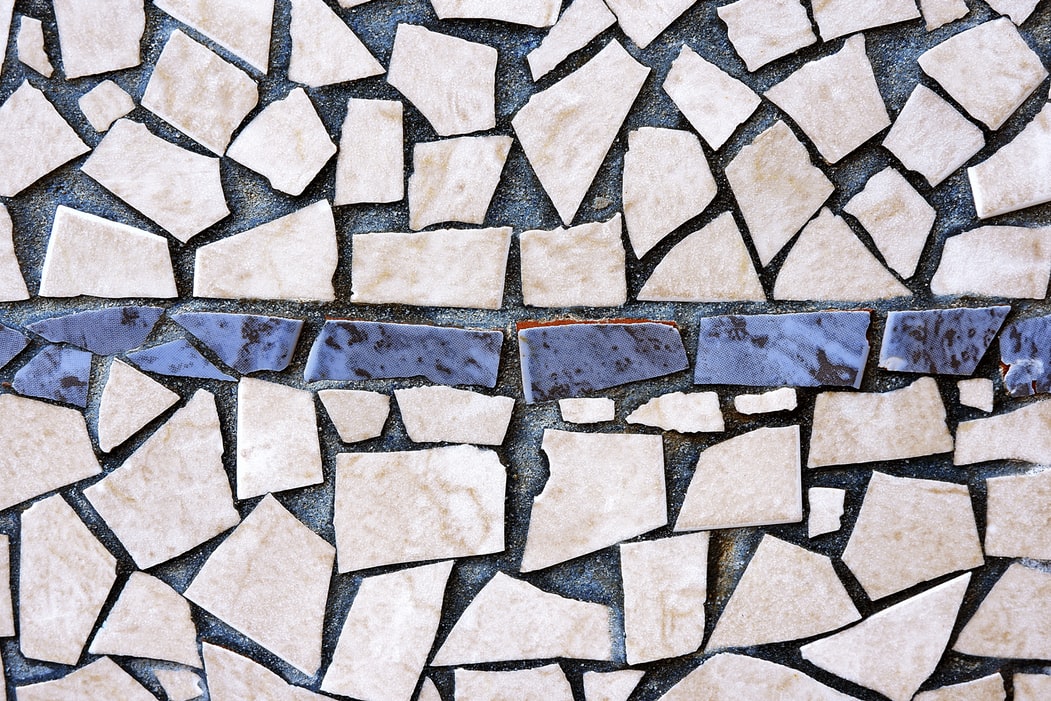 Porcelain vs. ceramic tiles debate has been going on for many years. Some people have taken time to research which the best material is based on its unique characteristics. Today, we dig deep in the porcelain vs. ceramic tiles debate and find out which is a better flooring material for various places in your home.
Porcelain vs. ceramic tiles debate has been going on for many years. Some people have taken time to research which the best material is based on its unique characteristics. Today, we dig deep in the porcelain vs. ceramic tiles debate and find out which is a better flooring material for various places in your home.
When you are looking for flooring material, you need to choose the one that is stain-resistant, durable, and can withstand heavy traffic depending on where you want to install it. Back into the porcelain vs. ceramic debate, which material fits these requirements?
Are you interested in installing flooring tiles in your shower, kitchen, or basement? Which material should you consider? A less porous material? A less dense material? One thing you need to know is that porcelain is dense and is suitable for both outdoor and indoor flooring.
Some people might prefer ceramic tiles for shower, kitchen, and basement since they are mostly recommended for indoor floors. But can ceramic material withstand heavy traffic on the kitchen floors? Are they highly resistant to scratching and chipping compared to porcelain? We will explore all this in this article and identify the unique features of each tiling material.
Contents
Porcelain vs. Ceramic Tiles for Shower
What is the best type of tile to use in a shower? Is porcelain or ceramic tile better for showers? What is the difference between ceramic and porcelain tile? Are porcelain tiles waterproof? These are might be some of the questions disturbing your mind. In our analysis, porcelain tile would be an ideal choice for shower tiling.
Why do we say this? Porcelain is made of finer clay which is heated at a higher temperature compared to the standard ceramic, and this makes it denser and harder. Compared to ceramic, porcelain is less porous, durable, and of higher quality since it absorbs less water in comparison with what ceramic tile does.
In your shower, a lot of water is used and spilled on the floor, which means that you require a tiling material that is liquid-resistant. For both floor and walls, porcelain tiling will be efficient since water will not penetrate on the slab materials. For ceramic, you might need to glaze it to enable it an ideal fitting for the shower tiling.
Without any glazing, the water absorption rate of ceramic is more than 3% compared to unglazed porcelain, which is less than 0.1%. For any climatic condition, porcelain becomes better for use in showers in both interior and exterior constructions.
When it comes to analyzing which one lasts longer, porcelain is more durable than ceramic. Porcelain tiles are hard, resistant to impact, and dense which makes them more durable. They endure heavy equipment placed on the surface and high traffic as well. Given the briefing, what is your take in the porcelain vs. ceramic tiles for shower debate? I leave that one to you!
Porcelain vs. Ceramic Tile for Kitchen Floor
Without a doubt, the kitchen is a high traffic area with furniture such as a table, heavy cookware, and many more others. But are porcelain tiles good for kitchens? Is porcelain best type of tile for a kitchen? You need to understand that there is a little difference between ceramic and porcelain. But your aim should be acquiring durable, hard, and water-resistant tiles.
Ceramic and porcelain tiles are both made from clay mixtures that are fired at high temperatures. They could be either unglazed or glazed depending on the manufacturer. But what are the minimal differences that you need to consider? For porcelain, the clay is mixed with sand and heated at high heat and pressure to make it less porous, denser, and harder compared to standard ceramic.
For high traffic place like kitchen, porcelain should be a suitable choice. To produce a colored surface, porcelain is glazed at a high temperature to embrace a glass-like coating. For unglazed porcelain, the color is added to the clay to produce a colored product. Both glazed and unglazed porcelain materials are resistant to scratches and wear.
The problem with porcelain is that you will need to call a professional to install the tiles on the floor. To cut the material, you will require special tools, which means that the project is hardly a do-it-yourself.
In admission, both materials are suitable for kitchen flooring, but the unique porcelain features make it a preferred choice. So what should consider in brief when addressing the porcelain vs. ceramic tile for kitchen floor problem? Check the briefing below.
- Moisture absorption and density of the material should be an attribute of focus. Porcelain is denser than ceramic and absorbs less moisture compared to ceramic.
- Second, wear ratings in both cases is a similarly essential element. Porcelain has a better wear resistance compared to ceramic.
- Third, costs and cuts; porcelain is costlier than ceramic. Due to high density, cutting individual porcelain tiles is difficult during the installation process compared to ceramic.
- Last, standing up to traffic; due to high density, porcelain is more durable and can withstand high traffic without fading. It has superior performance in areas of high traffic and can withstand the weight of the heavy furniture such as tables and chairs without any damage caused on its surface.
Porcelain vs. Ceramic Tile for Basement
What is the best flooring for a basement? Can you mix ceramic and porcelain tile? Is ceramic tile ok for flooring? If these are some of the questions you have, let’s try to find the answers. If you have a basement, you are likely to be drawn into the porcelain vs. ceramic tile for basement question. Some people think that have you have installed concrete slabs on the basement, you don’t need tiles. Just above the concrete slabs, you can install either ceramic or porcelain tiles to make the surface appear more finished.
What are the advantages of having either porcelain or ceramic? In the event of flooding, they can easily dry out and won’t get damaged. If you opt for ceramic tiles, the project can be easily do-it-yourself since the material is easy to cut. Besides, ceramic comes with a wide range of styles and color. It has a smooth surface that does not crack and is not affected by moisture.
In the basement, if you decide to use porcelain, you will require radiant heating because of the low temperatures there. For porcelain, you will require a professional to make the installation since this cannot be a do-it-yourself project.
Conclusion
In summary, the porcelain vs. ceramic tiles debate seems to take a great twist. In areas like bathroom and kitchen, porcelain seems the ideal tiling material. For the basement, ceramic seems to have qualities that befit the conditions down there. If you want to know which is better porcelain or ceramic? You need to first understand where you are installing the tiles.
